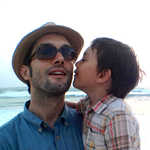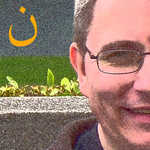

To acclimatize to Addis one must first learn to give up control. Failure to do so may result in a total loss of sanity.
October 24th, 2013, 8am
This is from Nick Ashdown, please visit his blog for the full article. I could not have summed up the Addis experience better.
Addis Ababa is many different cities to many different people – the rich, the poor, men, women, locals, foreigners, the diaspora, those born in the city, and those from the provinces.
Fickle Addis defies generalization. It is reliably inconsistent. One sees too many luxury amenities to call it poor, too many wretched beggars to call it wealthy; too many easy smiles to call it mean, too many menacing glares to call it friendly; too many courtly bows to call it impolite, too much street boorishness to call it respectful; too much public affection to call it cold, too much impunity and indifference to call it compassionate; too much hope and joy to call it miserable, too much despair to call it happy; too much fraternity and piety to call it selfish, too much opportunism and greed to call it generous. Xenophobia and hospitality live side by side.
There is a justifiable feeling of deep pride in Ethiopia’s rich culture and glorious history, but also a bitter resentment and shame in the poverty and wars that have ravaged the country.
The story continues here.
Filed Under
Other moments in Addis Ababa
-
e·piph·a·nyiˈpifənē/ noun/ 1. the manifestation of Christ to the Gentiles as represented by the Magi (Matthew 2:1-12).
in Addis Ababa, Ethiopia -
Time to move on ...
in Addis Ababa, Ethiopia -
Winter
The end of the year is nigh ...
in Addis Ababa, Ethiopia -
Citizen Journalism, Terrorism
When I was a kid, there were no guards at the school gate, let alone those armed with AK-47s !
in Addis Ababa, Ethiopia -
Football, soccer
The highway is my soccer field.
in Addis Ababa, Ethiopia -
Commutes
Meanwhile ... And this is the pre-construction traffic!
in Addis Ababa, Ethiopia -
Commutes, Urbanism, Terrorism
Morning commute. Mind you, this is not the country side, this is the city center of Ethiopia's capital!
in Addis Ababa, Ethiopia -
Parenthood
"Julius, do you want to watch some TV with papa?" "Shhh, I am reading" ...
in Addis Ababa, Ethiopia -
Here comes the flood ... Local school kids on their way home.
in Addis Ababa, Ethiopia






